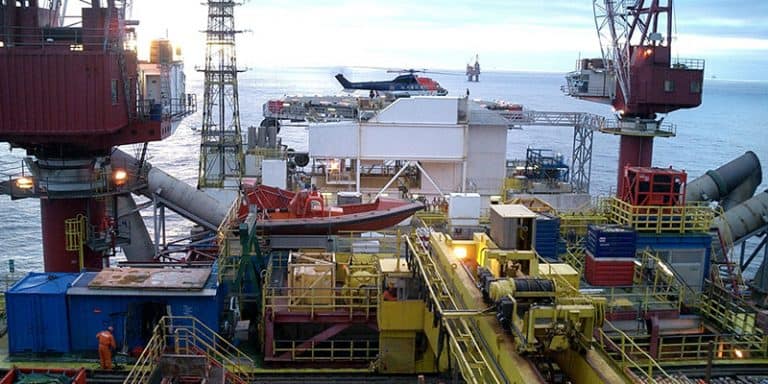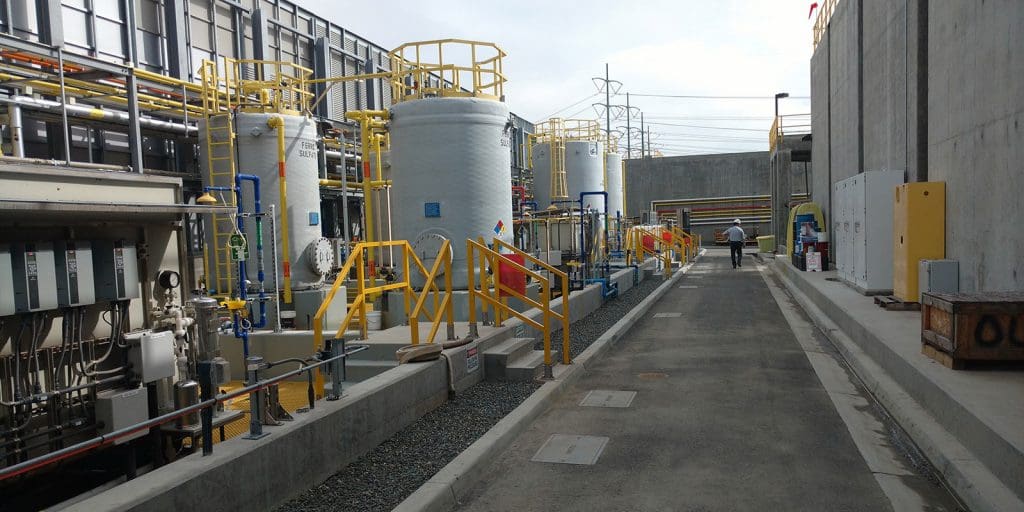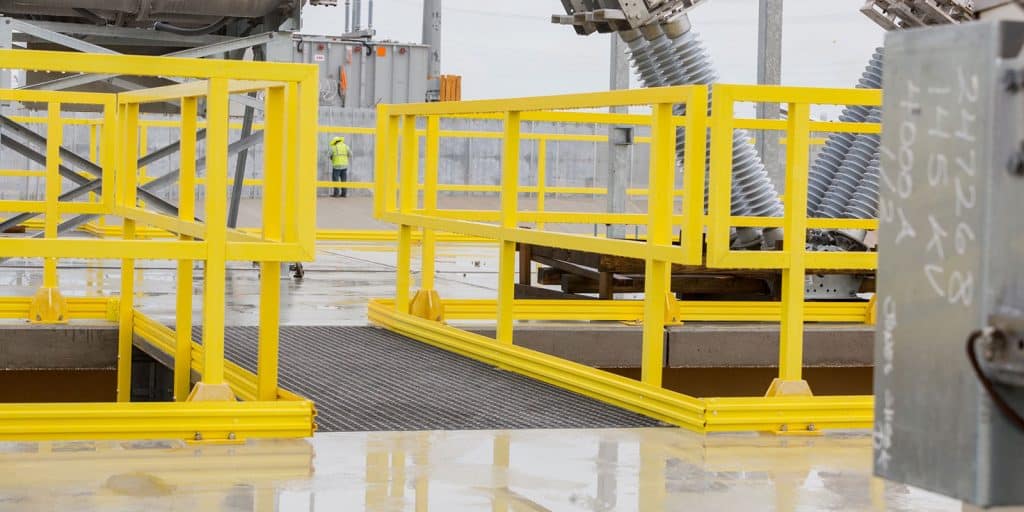Marine structures and components are constantly exposed to high stresses due to the combined effects of saltwater, waves, wind, the sun, the temperature, and the oxygen, moisture and salt contained in the air. Additionally, they must face harsh and relentless environmental conditions during their lifetime, whether they are submerged in saltwater or situated in the splash zone.
Not surprisingly, corrosion — the deterioration of a material caused by a reaction to exposure to moisture or chemicals — is severe in marine environments. Iron or steel, when exposed to water, will start to rust within hours. More corrosion-resistant metals, such as aluminum and copper, will corrode at a slower rate, and a treated metal like stainless steel will corrode over time.
Corrosion has been a difficult and ongoing issue for marine industries, including offshore rigs and refineries in the oil and gas industry, for decades. In fact, corrosion and the subsequent loss of metals is the main cause for damage and failure of offshore steel pipes used to transport oil and gas. Repairing them is of paramount concern.

Overcoming Corrosion
Non-corrosive composite materials such as fiberglass-reinforced plastic (FRP) have been extensively studied and incorporated in marine industries, following their early applications after World War II when composites were designed to overcome corrosion issues experienced with steel, aluminum and wood. Weight reduction was, and continues to be, a key concern, specifically for topside weight in large commercial vessels. Substantial benefits have been realized from the replacement of even just a few structures and components.
Over the years, FRP has been meeting the increasing and variable demand in all areas of the marine sector, and the past several decades have seen the rapid adoption and employment of FRP composite materials throughout marine industries — remarkably so in offshore oil and gas applications. And the trend is growing.
ReadySeries: A Perfect Fit for Offshore Oil and Gas Applications
Bedford’s corrosion-resistant ReadySeries modular FRP structural products have proven ideal for offshore applications in the oil and gas industry and for good reason. The ReadySeries FRP structures and components offer significant advantages:
- Resistant to saltwater, salt air, harsh weather and chemicals — so it won’t rot, rust or corrode
- Strong yet lightweight — pound for pound, Bedford’s FRP structural members are stronger than many steels in the lengthwise direction and weigh up to 75% less, making them easier to transport and install
- Slip-resistant surfaces available — safety is important in wet and oily conditions to protect workers from slips and falls
- Humidity resistant — no shrinking or swelling
- High structural integrity — exceptionally durable and impact resistant; won’t warp, dent or bow
- Long-lasting — gratings, profiles and structures stand the test of time
- Simple fabrication — easily installed using standard tools, so no specialized labor, welding equipment or cutting torches are necessary
- Wide range of pre-engineered components and sizes with limitless configurations — makes it easy to meet any need, fast
- Fire retardant options available
- OSHA compliant — with OSHA safety yellow color option available
- Virtually maintenance-free


Without a doubt, offshore oil and gas industry platforms and applications run the risk of major corrosion, fires and slippery surfaces, so the materials used in construction must be selected carefully. Bedford’s ReadySeries FRP materials solve those problems with superior durability, slip-resistant surfaces, flame-resistant treatments and, of course, superior resistance to corrosive saltwater, drilling fluids, acids and other chemical compounds. The result is minimal maintenance requirements, a long service life, enhanced safety and a lower life cycle cost than steel and aluminum. Ultimately, Bedford’s high-performance ReadySeries products help oil and gas companies maximize operational uptime in offshore applications.
Your Reliable Resource
For nearly five decades, Bedford has met the challenges of the extreme, offshore environmental conditions faced by the oil and gas industry with its wide array of ReadySeries FRP products. Today, Bedford ReadySeries products can be found on offshore drilling rigs, refineries and oil and gas containment facilities.
- Offshore rigs — Bedford fiberglass pultrusions are ideal for handrails, ladders, platforms and catwalks because they won’t corrode, rust or rot when exposed to salt air and water.
- Refineries — Bedford’s FRP won’t corrode in harsh refinery conditions and will last longer than traditional materials.
- Oil and gas containment — Ladders, catwalks, stairs and handrails made from fiberglass pultruded shapes are all recommended for corrosive environments like tank facilities.
Get Started
Interested in learning more? We’re here to help. Reach out to our experienced team with questions, request a quote, or call 814-623-8125 to discuss your project.